
Keyword search
"Anchored in Hong Kong, Connecting the Greater Bay Area” From GBA to Global Health Summit
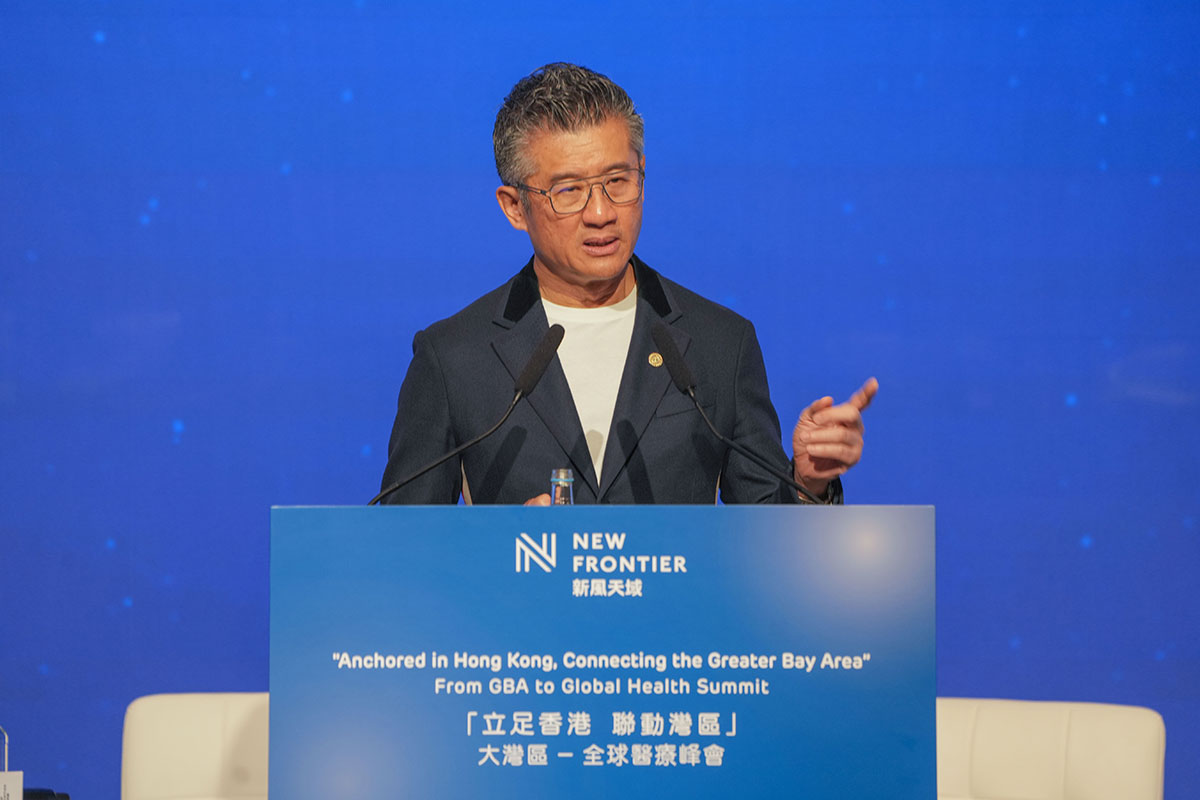
Prof. Tony Mok, Chairman, Department of Clinical Oncology, The Chinese University of Hong Kong
Presentation: “Redefining Cancer Care: Smarter Therapies with Global Impact”
Prof. Mok—renowned for his work in lung cancer research and precision oncology—reviewed state‑of‑the‑art tumor‑targeted treatments including ADCs (antibody‑drug conjugates) and mRNA vaccines, discussing their strengths and limitations. He then introduced an AI‑driven, 3D quantitative technology that intelligently matches patients to optimal treatment targets. He concluded by exploring how such drugs can scale globally, underscoring Hong Kong’s strategic advantages as a hub for clinical registration.
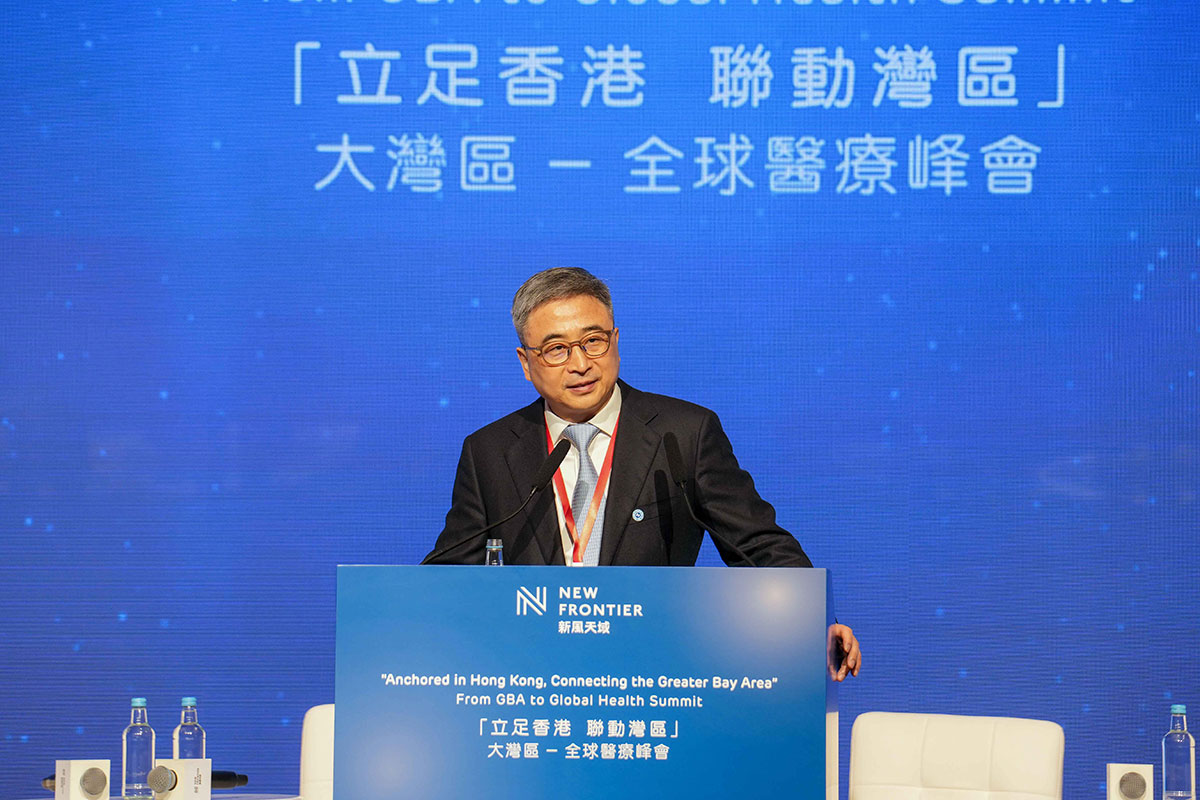
Prof. He Jianxing, Director of National Respiratory Medical Center; President of Guangzhou Respiratory Health Research Institute
Presentation: he Future of Minial-Invasive Surgery, Cancer Operations, and Lung Transplant Technology
A pioneer of minimally invasive thoracic surgery and national guideline contributor, Prof. He showcased 19 AI innovations in surgical care. He emphasized the need for faster, more standardized, and simpler methods to fulfill surgical missions in an age of rapid technological advancement.
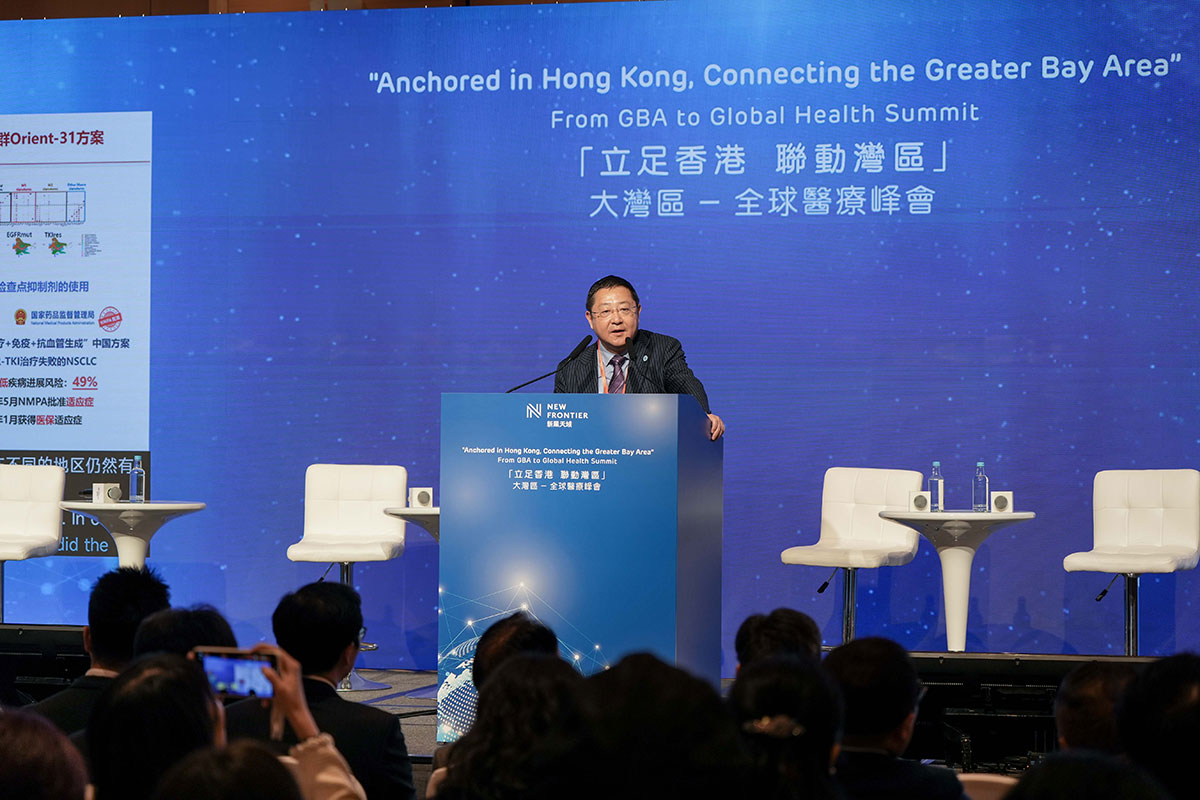
Prof. Lu Shun, Life Tenured Professor of the Affiliated Chest Hospital of Shanghai Jiao Tong University School of Medicine;Director of Shanghai Lung Cancer Clinical Medicine Center
Presentation: Registry studies concerning lung cancer in China from the perspectives of principal investigators.
Prof. Lu reflected on 22 landmark lung cancer clinical trials led by his team, highlighting precision‑medicine expansions to increase therapy‑eligible populations and improve clinical outcomes. He advocated patient‑centric research that bridges basic, translational, regulatory, and medical sciences—aiming to maximize scientific, clinical, and commercial impact from China and beyond.
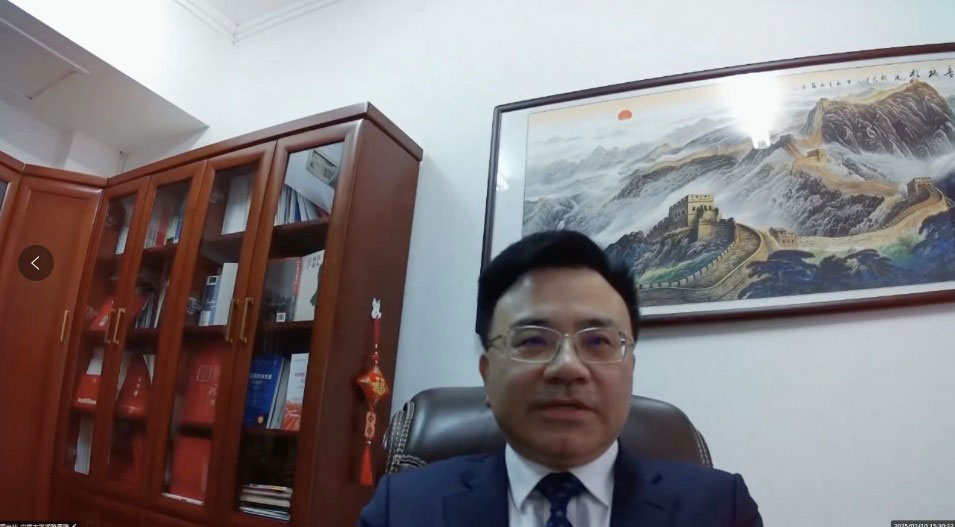
Prof. Lei Guanghua, President of Xiangya Hospital, Central South University
Presentation: Rebuilding Strength: Pioneering Advances in Osteoarthritis and Bone Health for a Better Tomorrow
Prof. Lei reviewed recent global literature on osteoarthritis (OA), covering risk‑prediction models, disease mechanisms, therapeutic targets, and interventions. He emphasized that mechanical imbalance—not only genetics, muscle strength, and quality—plays a crucial role in OA onset, and that proactive walking can help reduce OA incidence. While global progress is remarkable, growing disease burden demands policy action and implementation.
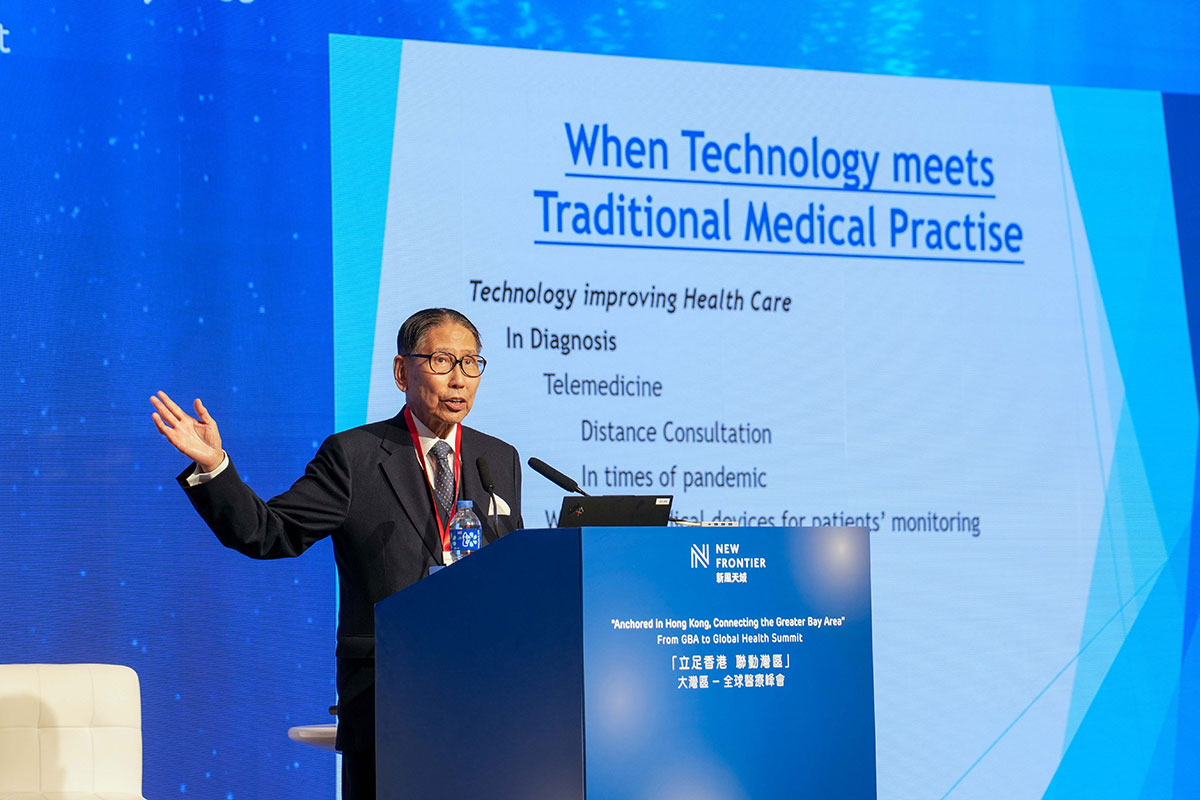
Dr. CH Leong, Director of New Frontier Corporation, Honorary President of Shenzhen New Frontier United Family Hospital
Presentation: When technology meets with Traditional Medical Practices
Dr. Leung highlighted how remote diagnosis, teleconsultations and wearable‑device monitoring are transforming diagnostics, while robotics, endovascular stent placement, rehabilitation technologies, and bionic prostheses are revolutionizing therapy. He also cautioned about the unintended consequences—AI-based triage may weaken doctor‑patient relationships, and data risks threaten privacy and cybersecurity. He stressed that innovation must be safe and patient‑centred.
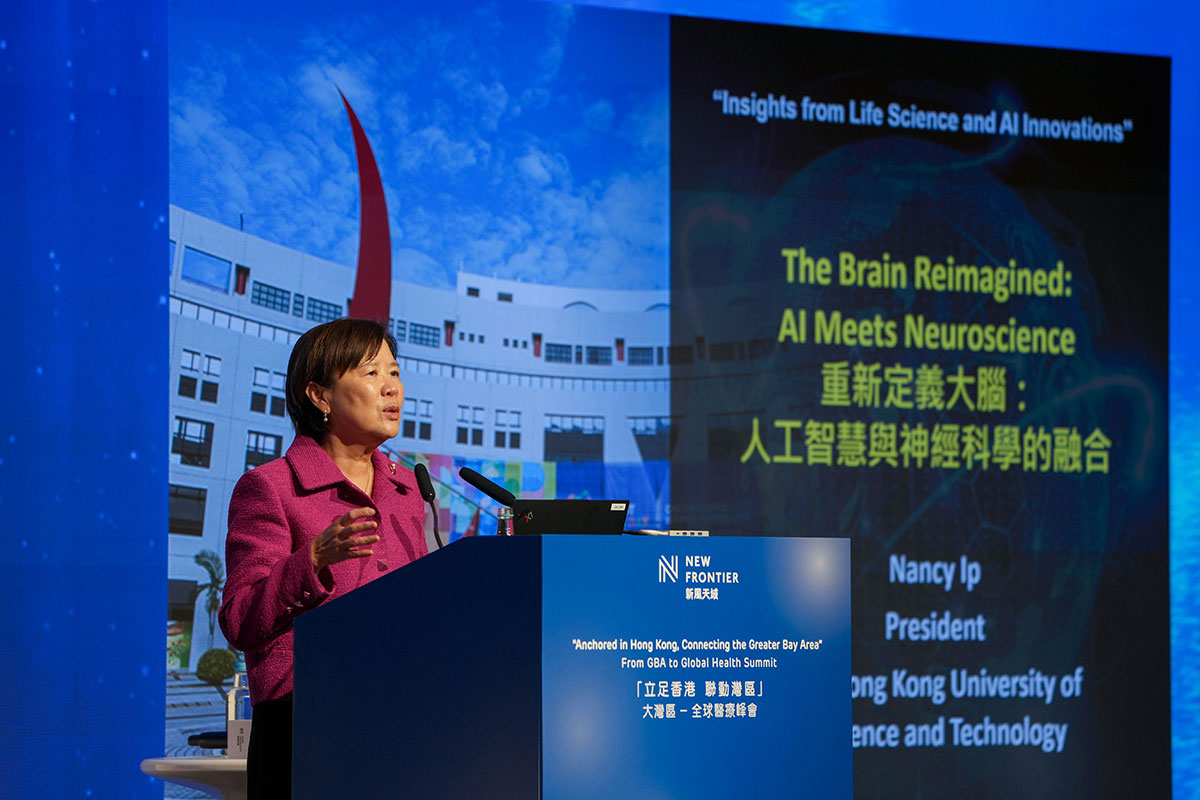
Prof. Nancy Y. Ip, President of The Hong Kong University of Science and Technology (HKUST); The Morningside Professor of Life Science
Presentation: The Brain Reimagined: AI Meets Neuroscience
Prof. Ye—an expert in life science and molecular neurobiology—used Alzheimer’s disease as a case study to showcase AI’s role in building gene databases and supporting biomarker development. She emphasized AI’s potential to revolutionize healthcare with unprecedented speed and scale.
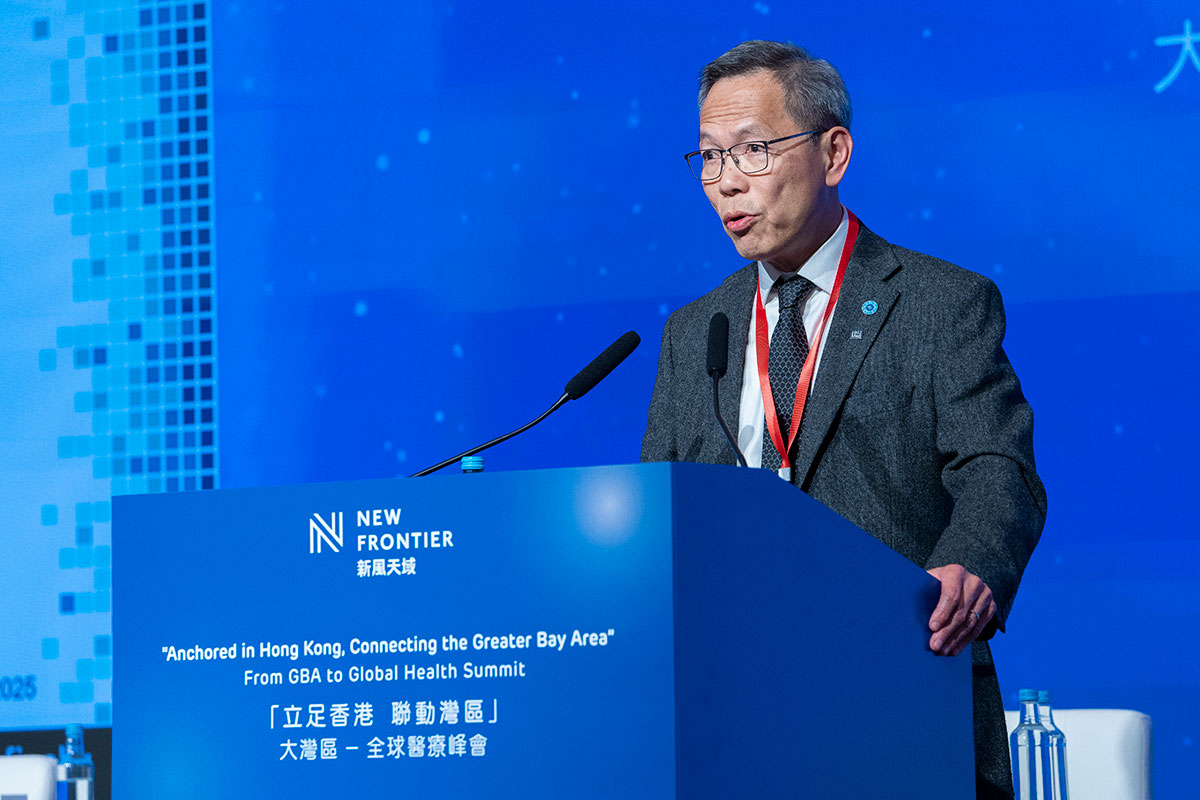
Prof. Chak-sing Lau, Dean of LKS Faculty of Medicine,The Hong Kong University
Presentation: Synergism in clinical drug development in the GBA
An expert in rheumatology and clinical immunology, Prof. Liu reviewed the current landscape and emerging trends of clinical trials and drug development in the Greater Bay Area. He emphasized diversity, equity, and inclusivity in trials and noted the broader economic benefits of local clinical research.
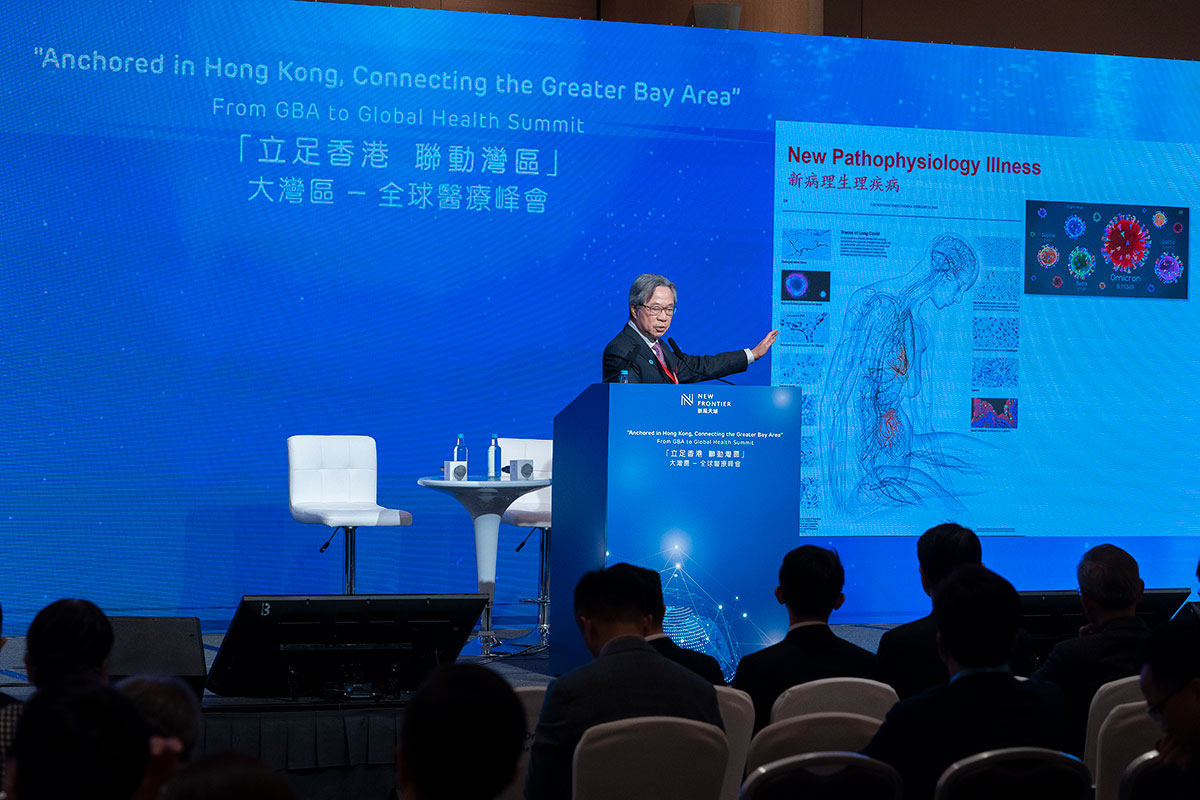
Prof. Davy Cheng, Founding Dean & Presidential Chair Professor, School of Medicine at the Chinese University of Hong Kong, Shenzhen
Presentation: AI in Healthcare and Medical Education: Are We Training the Right Genotype and Phenotype of Physicians?
Prof. Zheng began by addressing the challenges of aging populations and chronic disease, arguing that integrating AI into medical curriculum is imperative. He went on to describe the strengths and limitations of AI in medical education before introducing CUHK‑SZ’s integrated East‑West AI‑driven medical training framework.
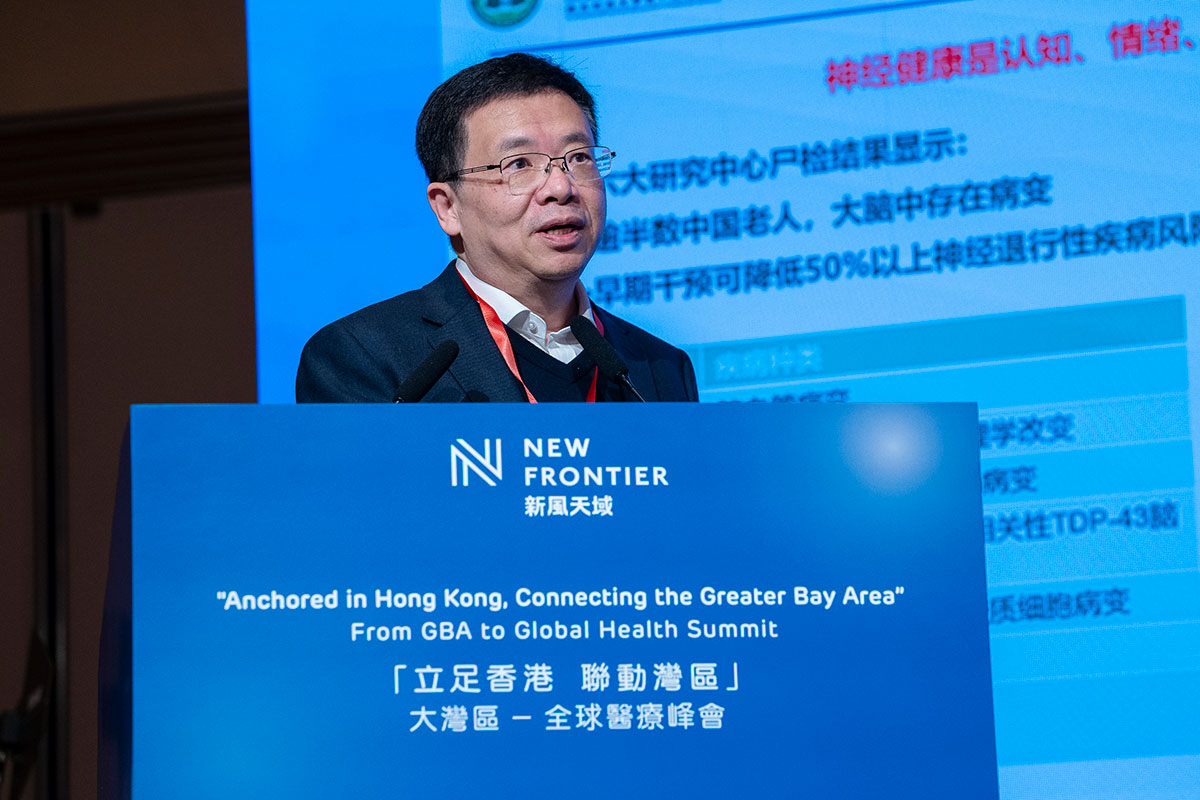
Prof. Guo Yi, Director, Department of Neurology, Shenzhen People's Hospital
Presentation: The Brain’s Blueprint: Unlocking Neurological Health for Lifelong Vitality
Prof. Guo—an expert in neurology—highlighted the pivotal role of EEG in neurological health management. He explained how AI can visualize brainwaves, deliver real-time monitoring, auto-generate reports, and interpret data via large models, enhancing diagnostic support. He also discussed how future brain–machine interfaces could drive neurological modulation. Prof. Guo, alongside New Frontier Health, officiated the launch of New Frontier Brain Health Centre—an important milestone for brain health innovation and eldercare across the GBA.
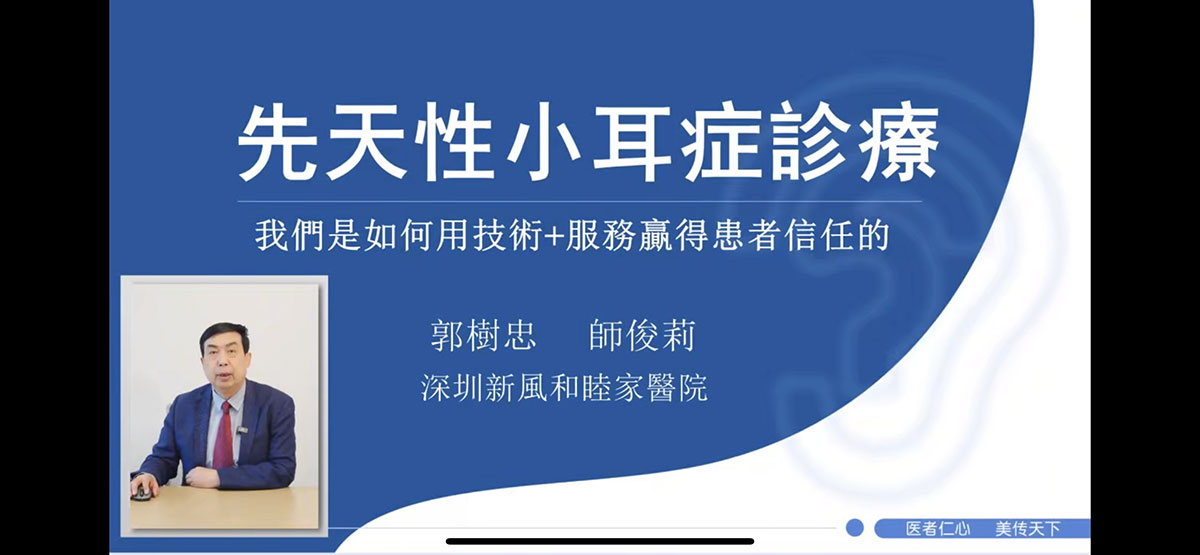
Dr. Guo Shuzhong, Plastic Surgeon, Chief Physician, Shenzhen New Frontier United Family Hospital
Presentation: Diagnosis and Treatment of Microtia: How We Win Patients' High Trust through Technology and Service
Prof. Guo traced the evolution of microtia reconstruction techniques and home‑grown Chinese innovations. His team performs over 2,000 surgeries annually, with a waiting list exceeding 6,000 nationwide—patients coming from across mainland China and as far afield as North America, Europe, and Southeast Asia.
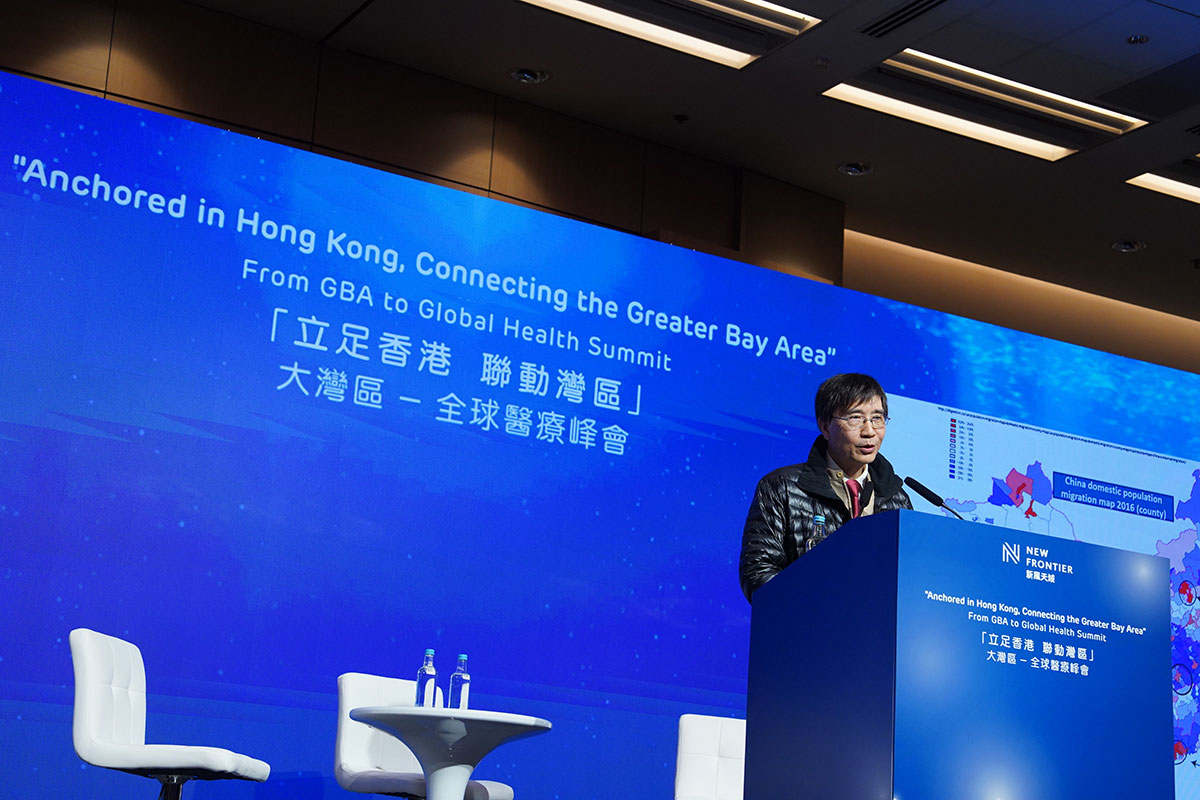
Prof. Yuen Kwok-Yung, The Chair in the Department of Microbiology and Henry Fok Professor of Infectious Diseases at the University of Hong Kong, and the Co-Director of the State Key Laboratory of Emerging Infectious Diseases
Presentation: The Next Pandemic: Exploring Post Pandemic Global Impact and Building Resilience Through Intelligence
Prof. Yuen reviewed lessons from H5N1 (1997) and SARS (2003), highlighting the importance of joint animal–human surveillance. He emphasized that emerging pathogens often originate in economically prosperous areas—urban densification and increased meat consumption raise zoonotic risk. His GBA data shows a hundred‑fold rise in meat consumption over 30 years, with a strong correlation between livestock density and zoonotic disease outbreaks. He urged a “trinity approach”: enhanced joint surveillance networks, AI‑powered regional epidemic early‑warning systems, and sustained governmental investment.
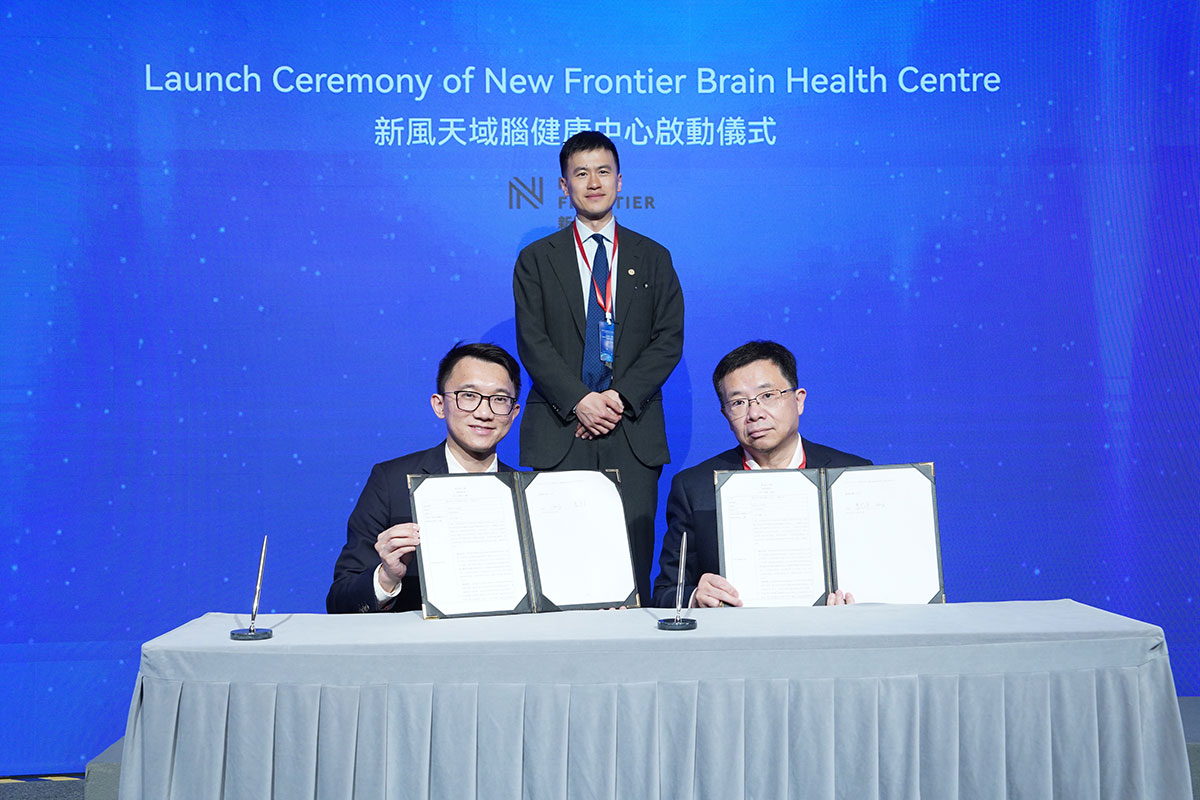
At the "Greater Bay Area Global Healthcare Summit" hosted by New Frontier, Professor Guo Yi, Director of the Department of Neurology at Shenzhen People's Hospital, delivered a keynote speech titled "Unlocking Neurological Health to Empower Lifelong Vitality." In his address, Professor Guo explored the pivotal role of electroencephalography (EEG) in the management of neurological health.
A leading expert in the field of neurology, Professor Guo emphasized the importance of neurological well-being in sustaining lifelong vitality. He highlighted EEG as a key tool in neurological assessment, noting how artificial intelligence is now enabling the visualization of brainwave activity, real-time monitoring, automated report generation, and interpretation through large language models. These advances provide valuable diagnostic support to clinicians. He further noted that following the development of large-scale AI models, brain-computer interface technology for neuromodulation is expected to see significant breakthroughs.
Following the speech, Professor Guo joined New Frontier Health in witnessing the official launch of the New Frontier Brain Health Center. This milestone marks another major step in New Frontier’s strategic expansion into neurological health and represents a new chapter in medical innovation and healthcare services across the Greater Bay Area—offering enhanced health management solutions for aging populations.










